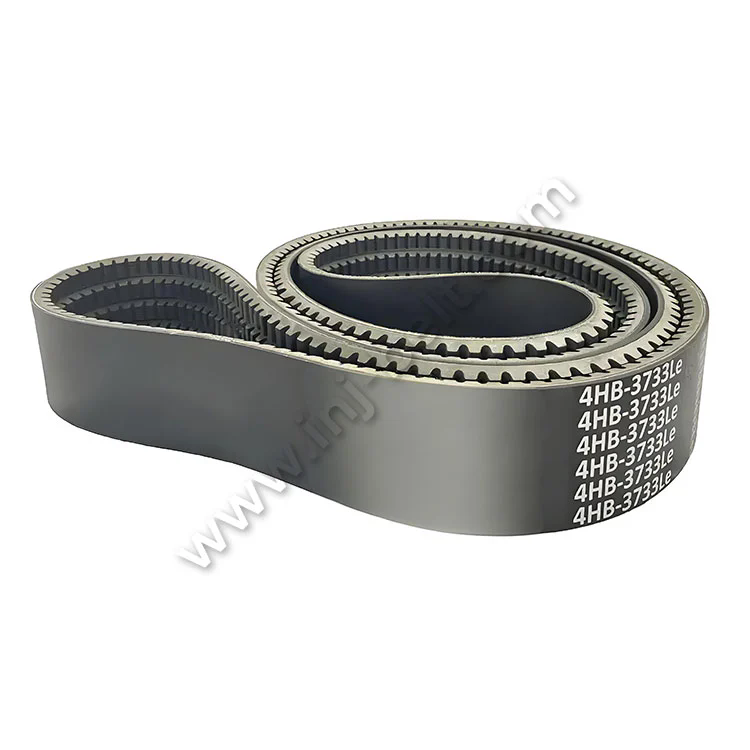What Are Rubber V Belts and Why Are They Essential?
2025-07-23
Rubber V belts, also known as Vee beltsor wedge belts, are a critical component in mechanical power transmission systems. Designed with a trapezoidal cross-section, these belts transmit power efficiently between rotating shafts by wedging into the pulley grooves, providing high torque transfer with minimal slippage.

How Do Rubber V Belts Work?
The "V" shape of the belt fits snugly into the corresponding pulley grooves. As the belt runs, the sides of the belt make contact with the pulley, creating a wedging action that improves grip and transmits torque effectively. This design enhances friction and prevents the belt from slipping under load.
What Are the Main Types of Rubber V Belts?
1. Classical V Belts (A, B, C, D, E series)
Widely used in general industrial applications.
Durable and cost-effective.
2. Narrow V Belts (3V, 5V, 8V series)
Provide higher power transmission in a compact space.
Ideal for high-speed and high-torque applications.
3. Cogged V Belts
Notched underside allows better flexibility and heat dissipation.
Suitable for small pulley diameters.
4. Double V Belts (Hexagonal Belts)
Used in serpentine belt systems where power is transmitted on both sides.
5. Joined V Belts (Banded Belts)
Several belts joined together for stability under shock loads or long center distances.
Advantages of Rubber V Belts
High Power Transmission Efficiency
Low Maintenance
Quiet Operation
Shock Absorption
Cost-Effective and Easy to Replace
Available in a Wide Range of Sizes and Profiles
Common Applications
Rubber V belts are widely used in:
Industrial Machinery
Agricultural Equipment
HVAC Systems
Automotive Engines
Conveyor Systems
Textile and Printing Machines
They are especially favored in environments where space is limited and smooth, quiet operation is required.
Construction and Materials
Typically made of:
High-quality rubber(natural or synthetic) for flexibility and grip
Polyester or aramid cordsfor tensile strength and dimensional stability
Fabric wrapping or synthetic coveringfor wear resistance
Modern versions may include oil- and heat-resistant compoundsfor long service life even in demanding conditions.
Conclusion
Rubber V belts are a proven and reliable solution for mechanical power transmission across industries. Their unique design, versatility, and efficiency make them indispensable for applications requiring high torque, durability, and cost-efficiency. Choosing the correct belt type and quality ensures long-lasting performance and reduced downtime in your machinery.


